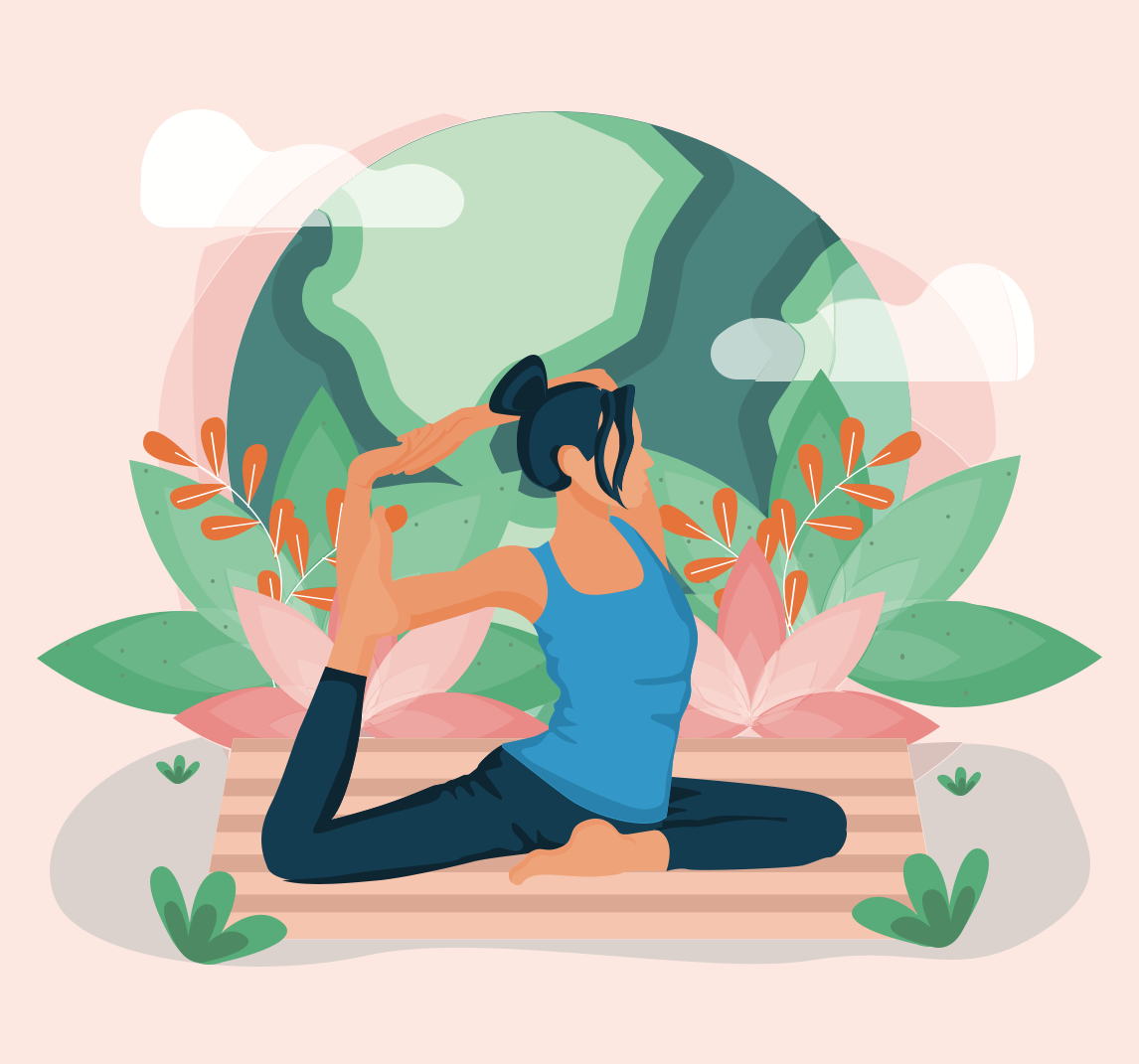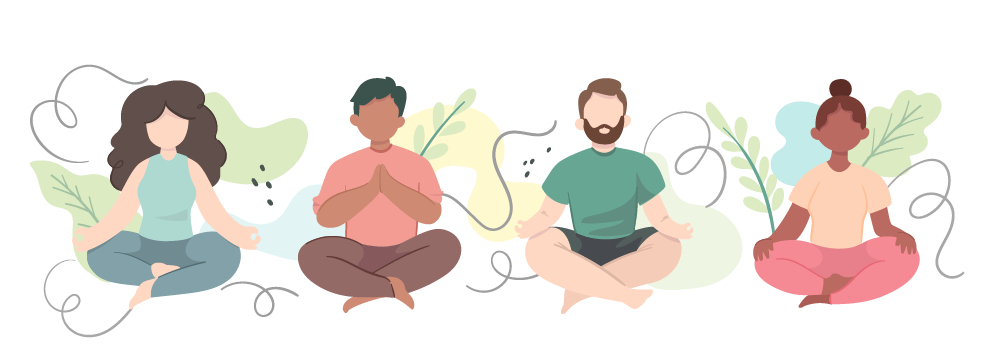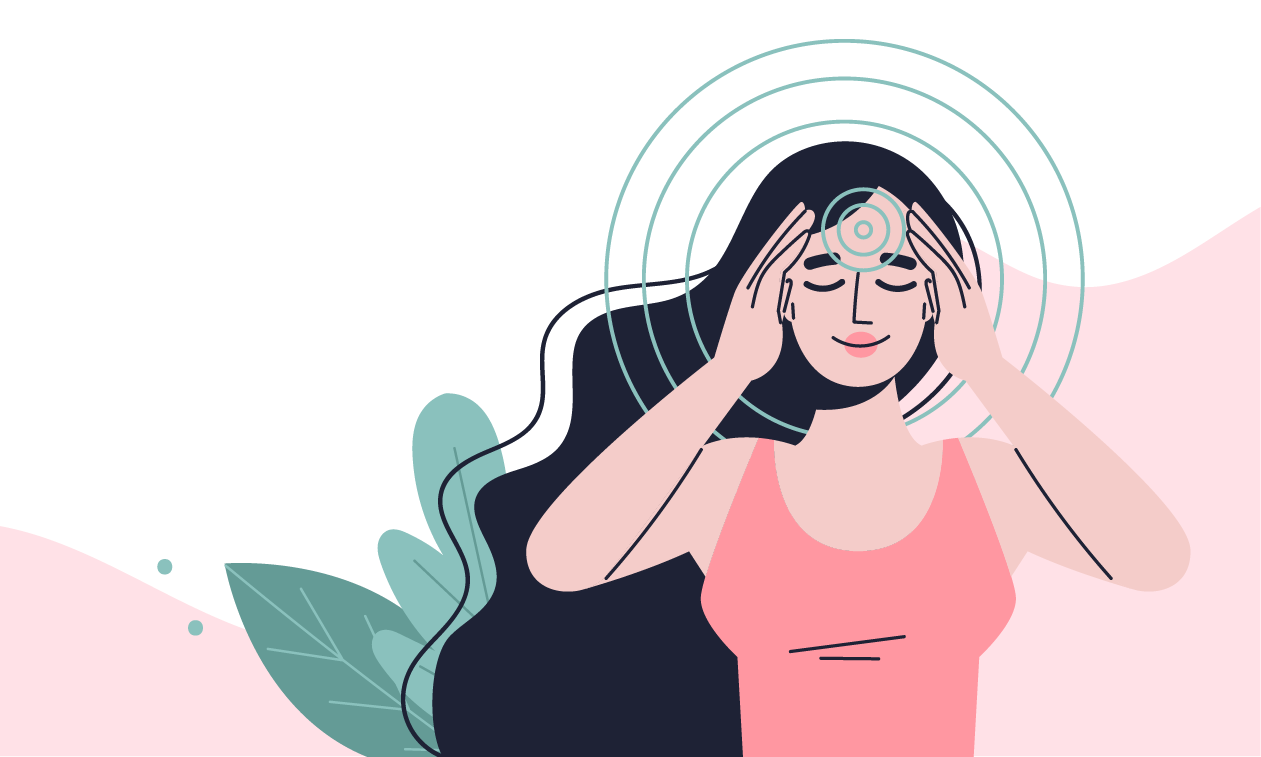Meditation – A Simple Guide for a Healthy Life
Did you know meditation has been around since the BCE era? According to wall art from the Indus Valley, meditation was practiced nearly 5,000 years ago. People are pictured sitting on the ground with their legs crossed, hands on their knees, and eyes closed, in positions commonly called meditation postures.

What is Meditation?
It is a simple technique that has been proven to help people reduce stress, overcome anxiety, improve their cardiovascular health, and achieve better levels of relaxation. From religious beliefs to cultural beliefs, meditation has its roots embedded in the past.
What are the types of meditation?
There are many forms of meditation, although many of them overlap. Here’s a list of the types of meditation and how they’re practiced if you’re interested in trying it but don’t know where to begin.
- Mindfulness involves being fully present with your mind and not overreacting emotionally to whatever is going on.
- Transcendental involves repeating a mantra, a word, a sound, or a short phrase, in a specific manner.
- Mantra involves repeating calming words, thoughts, or phrases to block distractions.
- Guided involves forming mental images or scenarios that are relaxing to you.
- Chakra involves a combination of relaxation techniques to balance the chakras, the seven major energy centers centered in the body.
- Yoga mediation involves performing various postures and controlled breathing exercises to cultivate flexibility and calm the mind.

What are the benefits of Meditation ?
It can enhance your emotional well-being and overall health by creating a sense of calm, peace, and balance.
Here are some of its benefits to get you started with meditation in the first place.
- Better focus and concentration: Medical research has shown that meditation increases gray matter in parts of the brain that regulate memory and learning. Thus, it helps in better focus and increased concentration.
- Improve self-esteem and self-awareness: Through meditation, you learn to observe yourself without judgment, which allows you to see yourself in a new light, which overall helps with self-esteem and self-awareness.
- Reduce stress: When you meditate, the stress hormone cortisol decreases, making you feel relaxed and calm.
- Help manage anxiety or depression: It has also been clinically proven that meditating regularly is a great way to manage mental illnesses, such as anxiety disorders, panic disorders, etc.
- Fight addiction: Meditation can help you to manage the relapse of addiction by controlling your thoughts.
The benefits may include relieving these conditions:
- Anxiety
- Asthma
- Cancer
- Chronic pain
- Depression
- Heart disease
- High blood pressure
- Irritable bowel syndrome
- Sleep problems
- Tension headaches
How to do it?
Meditation is a simple process that can be done anywhere you can focus.

- Find a quiet space: Make sure you are not interrupted while you meditate. Silence your phone and find an isolated room.
- Sit in a comfortable position: A cushion or blanket can be used as a seat, or you can sit on the floor or a chair. Maintain a relaxed posture, but do not tense up.
- Breath gently: Concentrate on each inhalation and exhalation. Start by scanning your entire body, from your toes to your head, noting each sensation as you go.
- Let distractions come and go: The thought that wanders your mind should be acknowledged, but the study should not occupy too much of your attention. Return your attention to your breathing gently.
Duration Of Meditation
You should be proud of yourself if you meditate for just five to ten minutes each day. People with more experience may prefer to meditate for 30 minutes to 45 minutes, but short practice periods can still have benefits.
The practice has been found to help manage chronic illnesses. Many people with mental conditions, such as depression and anxiety, have said that practicing meditation has helped them, and there is scientific evidence supporting their claims.

” One should try and meditate same time every day if you can, as this will help you establish it as part of your daily schedule. For whatever reason, you may have to miss a day. Try not to overthink it — just get back to your routine the next day and practice meditation”

